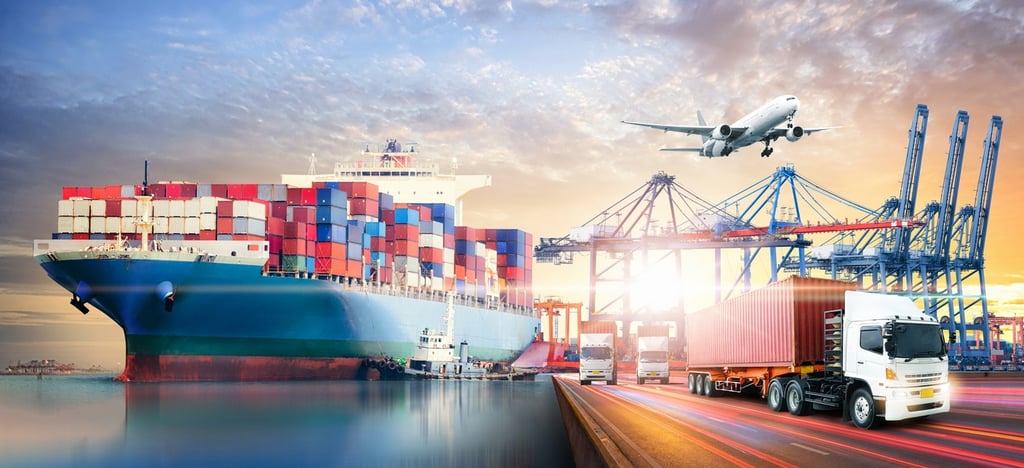Incoterms® Explained – Delivered at Place (DAP)
April 2, 2025
Randy S. Kramer


Incoterms® Explained – Delivered at Place (DAP)
𝗗𝗔𝗣, 𝗼𝗿 𝗗𝗲𝗹𝗶𝘃𝗲𝗿𝗲𝗱 𝗮𝘁 𝗣𝗹𝗮𝗰𝗲, refers to an Incoterm® (International Commercial Term) used in international trade that outlines the duties of both the seller and buyer during shipping.
In a DAP arrangement, the seller transports the goods to a predetermined location, known as the named place. This location could be the buyer’s warehouse, a port terminal, or another agreed-upon site.
The seller is responsible for all logistics associated with delivering the goods to this location, which encompasses export duties, transportation expenses, and handling costs. The seller bears the risk of loss or damage until the items arrive at the designated destination.
Once the goods reach the specified location, the buyer assumes responsibility for and risk of loss or damage to them. This includes unloading the goods, completing import clearance procedures, and paying any import duties and taxes.
Overall, DAP streamlines the process for the buyer, as it places the onus of managing shipping logistics and risks onto the seller until delivery to the specified location. This Incoterm is especially advantageous as it ensures the buyer receives the items at a location that is convenient for it, while the seller oversees the entire journey up to that point.
𝗔𝗱𝘃𝗮𝗻𝘁𝗮𝗴𝗲𝘀 𝗼𝗳 𝗗𝗔𝗣 𝗳𝗼𝗿 𝘁𝗵𝗲 𝗕𝘂𝘆𝗲𝗿
- 𝗟𝗼𝘄𝗲𝗿𝗲𝗱 𝗥𝗶𝘀𝗸: In a DAP arrangement, the seller assumes the majority of transportation risks and expenses. The buyer only assumes risk once the goods arrive at the designated location.
- 𝗦𝘁𝗿𝗲𝗮𝗺𝗹𝗶𝗻𝗲𝗱 𝗟𝗼𝗴𝗶𝘀𝘁𝗶𝗰𝘀: The seller oversees the intricate logistics involved in international shipping, simplifying the process for the buyer to receive goods without coordinating with various carriers.
- 𝗖𝗼𝗻𝘀𝗶𝘀𝘁𝗲𝗻𝘁 𝗖𝗼𝘀𝘁𝘀: The buyer knows the total price for goods delivered to the designated location, facilitating budgeting.
𝗗𝗶𝘀𝗮𝗱𝘃𝗮𝗻𝘁𝗮𝗴𝗲𝘀 𝗼𝗳 𝗗𝗔𝗣 𝗳𝗼𝗿 𝘁𝗵𝗲 𝗕𝘂𝘆𝗲𝗿
- 𝗛𝗶𝗴𝗵𝗲𝗿 𝗖𝗼𝘀𝘁𝘀: DAP can be more expensive for the buyer compared to other Incoterms like FOB (Free on Board) or CIF (Cost, Insurance and Freight). The seller includes all transportation costs, which can increase the overall price.
- 𝗖𝘂𝘀𝘁𝗼𝗺𝘀 𝗗𝗲𝗹𝗮𝘆𝘀: The buyer is responsible for customs clearance and import duties. Any delays or issues at customs can lead to additional costs and delivery delays.
- 𝗟𝗶𝗺𝗶𝘁𝗲𝗱 𝗖𝗼𝗻𝘁𝗿𝗼𝗹: The buyer has less control over the shipping process and may not be able to select the most cost-effective or reliable carriers.
- 𝗨𝗻𝗹𝗼𝗮𝗱𝗶𝗻𝗴 𝗥𝗲𝘀𝗽𝗼𝗻𝘀𝗶𝗯𝗶𝗹𝗶𝘁𝘆: The buyer must arrange and pay to unload the goods at the final destination, which can add to the cost and complexity.
BOUTIQUE INTERNATIONAL TRADE, TRANSPORTATION & LOGISTICS LAW FIRM
Providing international trade, transportation & logistics law services respecting the law of the US, Canada, and the UK
E: info@kramerintlaw.com
T (US): +1 (347) 588-4060, Ext. 1010
© 2026 Kramer International Law.


T (Can): +1 (514) 470-0717, Ext. 1010
The information on this website is for general information purposes only. Nothing on this site should be taken as legal advice for any particular case or situation. This information is not intended to create, and receipt or viewing does not constitute, an attorney-client relationship. Attorney Advertisement.
CONTACT FORM
T (UK): +44 20 3996 9356, Ext. 1010
